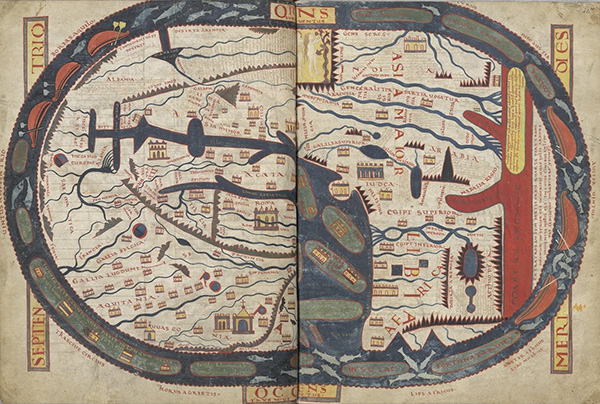The period between 711 and 778 marked a turbulent era for the Basque Country, characterized by relentless warfare. The Muslim conquest of the Iberian Peninsula began in 711, under which Odo the Great reigned as king of the Basques. Ascending to the throne in 710 following the death of Lupus Otsoa I, Odo controlled a realm that spanned from the Ebro to the Loire rivers, encompassing both the Basque Country and Aquitaine.

The Basque Country during this time extended from the Ebro to the Garonne rivers, as noted in Frankish chronicles (Wascones, qui trans Garonnam et circa Pirineum montem habitant), with key cities including Pamplona, Tolosa, and Bordeaux. Conversely, Aquitaine stretched from the Garonne to the Loire rivers.
During the Eight Years' War from 760 to 768, Pepin the Short, the Frankish king, seized Aquitaine from the Basques (Pippinus rex cumflictum habuit cum Wascones), and his son Charles, who would later become emperor and reign from 768 to 814, launched further punitive expeditions against them.
By the late 8th century, Eneko led the Pamplonese Basques, passing away in 820. His legacy continued through his son Eneko, also known as Enneco Ennecones in Latin and Wannaqo ibn Wannaqo in Arab chronicles (Eneko Enekoitz in Basque), who earned the nickname Aritza ("the oak" or "the strong"). Eneko Aritza was crowned the first king of Pamplona in 824 and ruled until 852.
Beyond the confines of the Basque Country, during this epoch, Silo was the ruler of Asturias (774-783), Adrian I served as Pope (772-795), Abd al-Rahman I was the emir of Cordoba, Charles governed as king over the Franks and the Lombards (768-814), and Muhammad ibn Mansur al-Mahdi was the caliph of Baghdad (775-785).